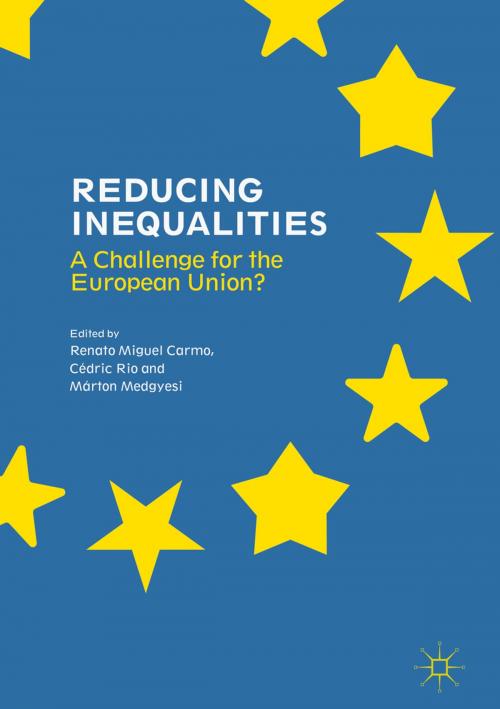Reducing Inequalities
A Challenge for the European Union?
Nonfiction, Social & Cultural Studies, Political Science, International, Social Science, Sociology| Author: | ISBN: | 9783319650067 | |
| Publisher: | Springer International Publishing | Publication: | January 17, 2018 |
| Imprint: | Palgrave Macmillan | Language: | English |
| Author: | |
| ISBN: | 9783319650067 |
| Publisher: | Springer International Publishing |
| Publication: | January 17, 2018 |
| Imprint: | Palgrave Macmillan |
| Language: | English |
This edited collection analyses social inequality in the European Union, within and between countries. The work critically explores both vertical inequality, existing between those with high incomes and low incomes, and horizontal inequality, existing between groups according to nationality, age, ethnicity, and gender.
Reducing Inequalities has been written by leading academics in the field who describe the current social situation in the European Union, focussing on inequality from a multidimensional perspective that includes income, poverty, social exclusion, education. The authors argue that social issues such as these have become national prerogatives for countries within the European Union. In response they ask: How does the European Union engage with inequality today? What principles of social solidarity ought to be applied between states and citizens of the European Union? What should be the role of European Union and its institutions regarding the challenge of reducing inequality?
This book will be of interest to anyone seeking to understand inequality as a multidimensional concept, rather than solely as an economic phenomenon, across different geographical and historical contexts.
This edited collection analyses social inequality in the European Union, within and between countries. The work critically explores both vertical inequality, existing between those with high incomes and low incomes, and horizontal inequality, existing between groups according to nationality, age, ethnicity, and gender.
Reducing Inequalities has been written by leading academics in the field who describe the current social situation in the European Union, focussing on inequality from a multidimensional perspective that includes income, poverty, social exclusion, education. The authors argue that social issues such as these have become national prerogatives for countries within the European Union. In response they ask: How does the European Union engage with inequality today? What principles of social solidarity ought to be applied between states and citizens of the European Union? What should be the role of European Union and its institutions regarding the challenge of reducing inequality?
This book will be of interest to anyone seeking to understand inequality as a multidimensional concept, rather than solely as an economic phenomenon, across different geographical and historical contexts.















